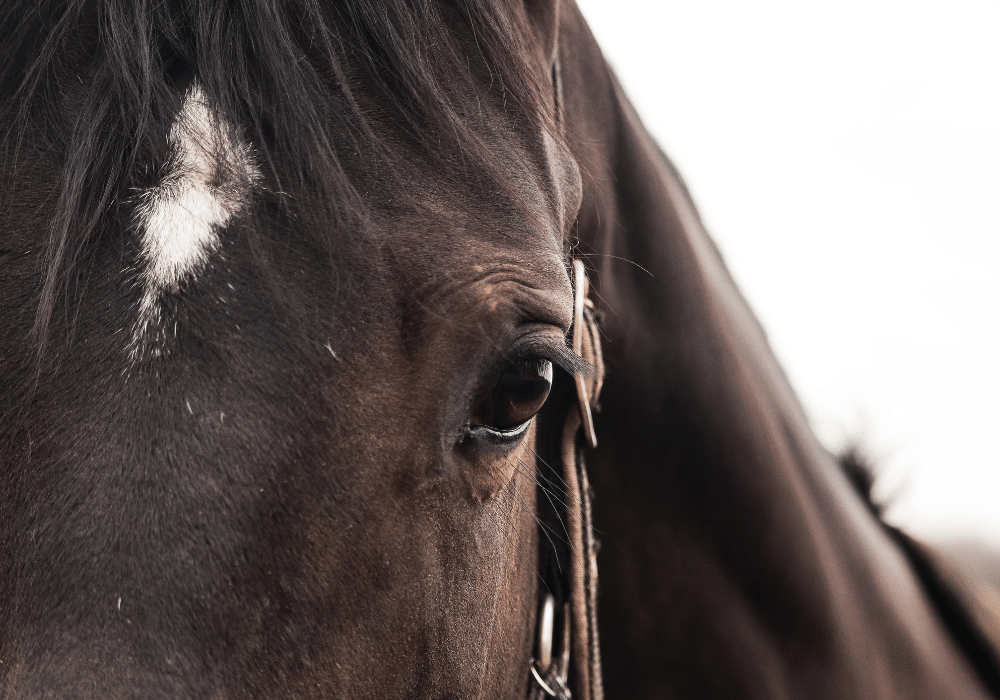Strangles is a highly contagious illness that affects the horse’s upper respiratory tract. It is caused by a bacteria, Streptococcus equi, and it can affect any horse. Whilst most horses make a full recovery from strangles, complications can occur and the disease can be fatal. This article outlines the symptoms of strangles in horses, as well as how strangles can be prevented.
The Symptoms of Strangles in Horses
The first sign of strangles is usually a high temperature of over 38.5 celsius. The horse may also seem dull and out of sorts. At this stage, the horse should be isolated and a vet called. The vet will be able to examine the horse and run tests to confirm or rule or strangles.
Other symptoms of strangles include:
- Thick nasal discharge
- Swollen lymph nodes and abscesses on the lymph nodes - these can be found on the horse’s head and neck
- Difficulty breathing and / or swallowing
- Loss of appetite
- Coughing
It is important to remember that even if one horse does not get severely ill with strangles, another horse might do. Strangles spreads easily through direct contact, coughs and sneezes and the bacteria can live on boot treads and other surfaces for weeks. Isolating horses will require separate mucking out, grooming and feeding equipment, and should be cared for after the rest of the horses on the yard. This is to minimise the chance of people spreading strangles from the isolating horses to the healthy horses. Equine strangles awareness is key to preventing outbreaks, and minimising the spread should a strangles outbreak occur. you can learn more about equine strangles awareness with our guide.
Equine Strangles Treatment
It is essential that strangles cases receive veterinary attention and good nursing care. Whilst strangles cannot be cured, it can be treated to relieve symptoms and ensure the horse is able to eat, drink and breathe. Your vet will be able to advise you on the best course of action four your horse. For more information on how equine strangles may be treated, take a look at our blog.
Preventing Strangles
Biosecurity is our best defence against strangles. This applies to managing and preventing strangles outbreaks. Biosecurity is an everyday consideration and every yard should have measures in place to prevent outbreaks of infectious diseases. Your vet will be able to advise you on biosecurity measures for your yard. You can learn more about equine biosecurity with our guide, and read our case study for an example of effective biosecurity measures in action.
Quarantining new arrivals to the yard and taking precautions at competitions and clinics can help to reduce the risk of your horse getting strangles, and it can also help to protect other horses. Ultimately, everyone has to work together to minimise the spread of equine strangles.
Horses can also be strangles carriers. This means they can shed the bacteria without being ill themselves. This is why it is important to have known or potential strangles carriers checked and treated, including horses that are recovering from having had strangles.
Equine Vaccinations for Strangles
There is a new equine strangles vaccine available, called Strangvac. Whilst this can reduce the chance of your horse becoming infected and reduce the severity of their symptoms, it cannot prevent strangles entirely. Vaccination should not be considered as a replacement for good biosecurity. Your vet will be able to advise you on the suitability of the strangles vaccine for your horse.
Avonvale Equine Vet Practice
From our equestrian vet clinic based in Ratley, near Banbury, we serve clients across Warwickshire, Northamptonshire and The Cotswolds. Our experienced and dedicated equine vets are able to offer practical advice as well as routine and emergency veterinary services. For a knowledgeable and trusted equine vet practice, register your horse with us today.








